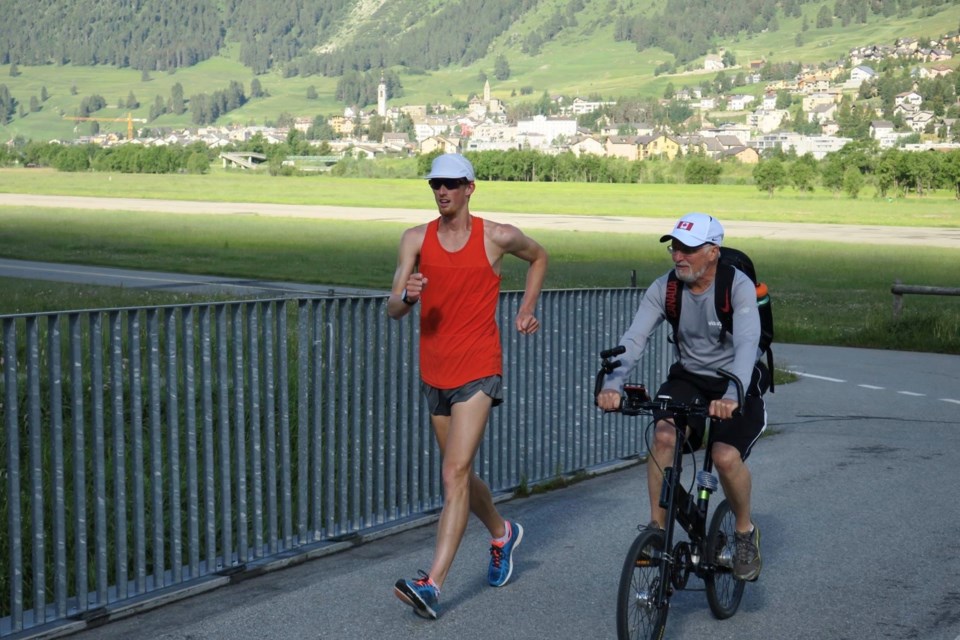Few of us can say that we haven’t been affected mentally by the events close to home and around the world over the last eight months.
The same can be said for Olympic athletes, who are in no way immune to the detrimental effects on mental health from the pandemic.
It was around the end of April and beginning of May that Richmond Olympian race walker Evan Dunfee started to realize he was psychologically off balance.
Although very much a solitary sport while a race is in full flight, race walkers have great camaraderie before and after, and oftentimes get together on the other side of the world to train.
“I was kind of putting on a brave face and trying to do everything myself,” Dunfee told the Richmond News.
“But at a certain point, I realized I wasn’t doing well, I was struggling mentally, I needed help. I had to reach out to people in my circle: my coach, family, teammates.
“It was so nice to gain perspective of how it was affecting people around the world. They were experiencing difficulties at varying degrees. It’s so easy to get caught in your own little bubble.
“I was able to step back, reframe my own setbacks and take positives from it.”
Dunfee said his coach, Gerry Dragomir, “stepped up big time.”
“He came out on the bike and kept me company on the road,” added Dunfee.
“It was easy to lose sight of what the bigger goal was. Asking for help really helped bring that clarity back and see the bigger picture again.”
Dunfee said it’s not just setting goals that’s important in maintaining his mental wellness, it’s recognizing the little successes along the way.
“I race 50K, which in itself is such a long way; there’s all the mental stuff of getting through a race of that distance,” he said, adding that he’s utilized the services of a sports psychiatrist this season.
“The thing is, though, we don’t do them very often. I have one goal a year to get ready for. So how do I stay motivated for the other 364 days?
“It has been really challenged this year, obviously. What I’ve learned to do in the last couple of years, is say ‘here’s my goal, here is where I’m at now and anything that gets me closer to that goal is a success and it’s worth celebrating. Whether or not I get to that goal….
“And my goals are quite big; I want to win Olympic gold and set world records. I know full well that there’s a better chance that won’t happen than it will.
“So I have to measure my success in knowing that I gave myself every chance to get there.”
Dunfee said his new techniques for goal-setting and mental wellness come from his earlier years as a top Canadian athlete, where winning and losing was his only yard stick.
“In 2012, when I missed the Olympic team, my world kind of came crashing down,” admitted Dunfee.
“I started working with a sports psych and reflecting on strategies that work and don’t work and being really honest with myself.
“I was such a sore loser before, everything was measured in win or lose.”



